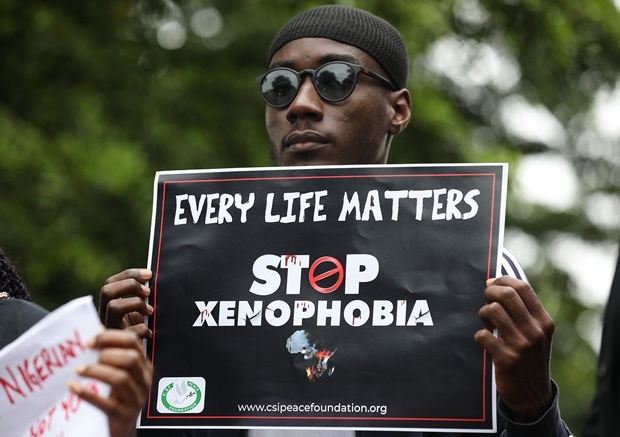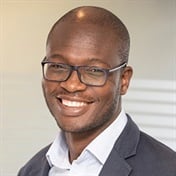
The debate about whether South Africans are xenophobic or not is unhelpful. Only the nations within South African who have not reached the level of political development that enables them to appreciate their rights and responsibilities under the Constitution are likely to be involved in all manner of violence against fellow locals and foreign nationals, writes Mpumelelo Mkhabela
In one of his memorable and controversial speeches, former president Thabo Mbeki suggested South Africa was a country of two nations – one white and wealthy, the other black and poor.
From economic resources perspective, he had a point. But the picture is changing. We may be a broadly black/white economically divided country, but there is complexity tinged with grey.
The truth is, South Africa is a country of many nations; not just two. A detailed study might be necessary to arrive at the close approximation of the number of nations we have in one country.
By nation, I’m not referring to linguistic/ethnic groups or material categories/class. I’m referring to the degree of allegiance to the Constitution and the laws of the Republic. There are a range of nations.
Within the range, starting from those who are ignorant about their rights and duties under the Constitution to those who live in terms of the constitutional prescripts, we have many nations. These nations have different expectations of themselves and others in relation to the supreme law within the territory called South Africa.
The differences among the nations – some sharp and some muted – over many issues are, I think, at the heart of the daily conflict within the country. Even if we exclude foreigners from the picture, we will remain with many nations of conflicting value systems.
For example, there would be pockets of communities in the North West, Mpumalanga and Gauteng – provinces of vastly different ethnic cultures and economic development – who would burn schools and/or libraries as a form of protest. In the same provinces, there would be people who would regard such conduct as a moral hazard.
Destruction of property or violence in general among some communities is not necessarily linked to poverty, even though poverty might be a contributing factor in some cases. It is about the level of political consciousness. You may be wealthy, but politically backward in relation to your allegiance to the Constitution.
We know of leaders of political parties who are very wealthy – never mind their sources of income – but who without provocation are always ready to make statements seeking to instigate some form of conflict. From land occupation to taking up arms, anything violent comes easy in their rhetoric.
Different 'nations'
By way of classification, such leaders and the pockets of communities that destroy public infrastructure belong to one nation within South Africa. Let’s call it the Red Flag Nation. (There are two Red Flag Nations – one black and the other white. The latter’s fame to disavowing the Constitution is mainly through racism. These nations are populated by extremists across racial lines, including those who think they differ, but don’t realise they are united by their general mutual disdain towards the Constitution. But for simplicity we’ll refer to both as Red Flag Nation).
Members of Red Flag Nations have a similar degree of lack of allegiance to the Constitution, regardless of their levels of material wellbeing as individuals within that nation. From time to time, some among them would exhibit some form of allegiance to the Constitution because they enjoy the trappings that come with such behaviour, but their core value system suggests that the Constitution is alien to them.
At the highest level of allegiance to the Constitution you find another nation. Let’s call it the Mandela Nation. Members of this nation seek to live in orderly, peaceful manner, where differences are resolved rationally.
In between the Red Flag Nation and the Mandela Nation, there are many others. Think about some parts of the country where noise pollution is the norm, despite municipal bylaws prohibiting it. Within the jurisdiction of the same municipality, maybe two kilometers from the loud-music areas, there is a residential area where noise could trigger the deployment of municipal police to enforce bylaws.
There are so many ways in which we can think about the things that separate us in relation to our allegiance to the Constitution and the laws sanctioned by it. The reason why the Constitution and the law in general are fundamental in telling us about our sense of nationhood is that citizenship and nationhood are primarily sources from the Constitution itself.
It is the Constitution that mandates the establishment of other laws to give effect to its own provisions. Allegiance to the Constitution and other laws in general is, therefore, crucial.
The point is that we are at different stages of political development. The highest form of political development would be the stage of the Mandela Nation. The lowest is in the form of the Red Flag Nation.
When we add foreign nationals into the mix, the picture gets even more complicated. If you entered South Africa illegally and for a very long time made no attempt to regularise your status, there is no way you claim you belong to the Mandela Nation. Even those who eventually get regularised, there appears to be no process to induct them on the basics of what it means to live in South Africa, what is allowed and what isn’t.
What is to be done?
Foreign nationals living in South Africa would more or less feature in the many existing nations within South Africa – ranging from the Red Flag to Mandela. Where violence or various forms of crimes can easily be committed among South Africans, there would be foreign nationals caught in it, either as victims or as perpetrators.
Violence can also occur as a result of friction between two different nations who are at different stages of political development. But members of the nation at the highest level of political development are highly unlikely to fight violently. They would rather take each other on in a manner prescribed by the Constitution and other laws – through various dispute resolution mechanisms. (This is my subjective localisation of Francis Fukuyama’s universal theory in his book End of History and the Last Man.)
The debate about whether South Africans are xenophobic or not is unhelpful. Only the nations within South African who have not reached the level of political development that enables them to appreciate their rights and responsibilities under the Constitution are likely to be involved in all manner of violence against fellow locals and foreign nationals.
In terms of the preamble of the Constitution, as South Africans we committed ourselves to "build a united and democratic South Africa able to take its rightful place as a sovereign state in a family of nations" of the world. It is clear that we have not reached the level of unity envisaged in the Constitution.
Granted, nation building is a never-ending process. But the violence among South Africans themselves – and by extension towards foreigners – is a symptom of nation building process that is stalling. The reaction by fellow Africans condemning "South Africa" for the attacks on foreigners shows lack of understanding of the fragmented socio-economic and cultural structure of the country in relation to allegiance to the Constitution. Condemning "South Africa" might seem inevitable when you look from a distance. But a closer inspection would reveal that it’s the nations within South Africa who are at their lowest level of political development who, even without foreigners, are likely to exhibit some form of violence because they are far away from the ideals of the Constitution.
While it is understandable for Zambia, for example, to cancel a friendly match with Bafana Bafana due to xenophobic violence, the problem is that the embarrassment is not felt by the "nation" within South Africa that perpetrated violent attacks on foreigners. It is not felt by the Red Flag Nation. Only the Mandela Nation is embarrassed.
Any attempt by any African country to "retaliate" against "South Africa" is bound to miss the point. If it is meant to embarrass the government so that it can take harsh action against the criminals, it is well and good. After all, the government has been lethargic in its fight against crime in general. But if the idea is to punish "South Africa", then it is a reaction based on "fallacy of the composition" – the idea that something is true of the whole simply because it is true of some parts of the whole.
So given this analysis, what is to be done? The solution is to craft strategies to lift those among us who are still at the lowest level of political development, so that they may undertake their responsibilities and claim their rights in terms of the Constitution of the Republic.
Section 3 of the Constitution says all citizens are entitled to rights, privileges and benefits of citizenship; and equally subject to the duties and responsibilities of citizenship. The same section convers "common South African citizenship". It’s clear that we need to quickly move to a situation where "common South African citizenship" under a "united and democratic South Africa" becomes real, and the differential allegiance to the Constitution and other laws is eliminated.
- Mkhabela is a regular columnist for News24.
** Want to respond to the columnist? Send your letter or article to voices@news24.com with your name, profile picture, contact details and location. We encourage a diversity of voices and views in our readers' submissions and reserve the right not to publish any and all submissions received.
Disclaimer: News24 encourages freedom of speech and the expression of diverse views. The views of columnists published on News24 are therefore their own and do not necessarily represent the views of News24.




 Publications
Publications
 Partners
Partners























